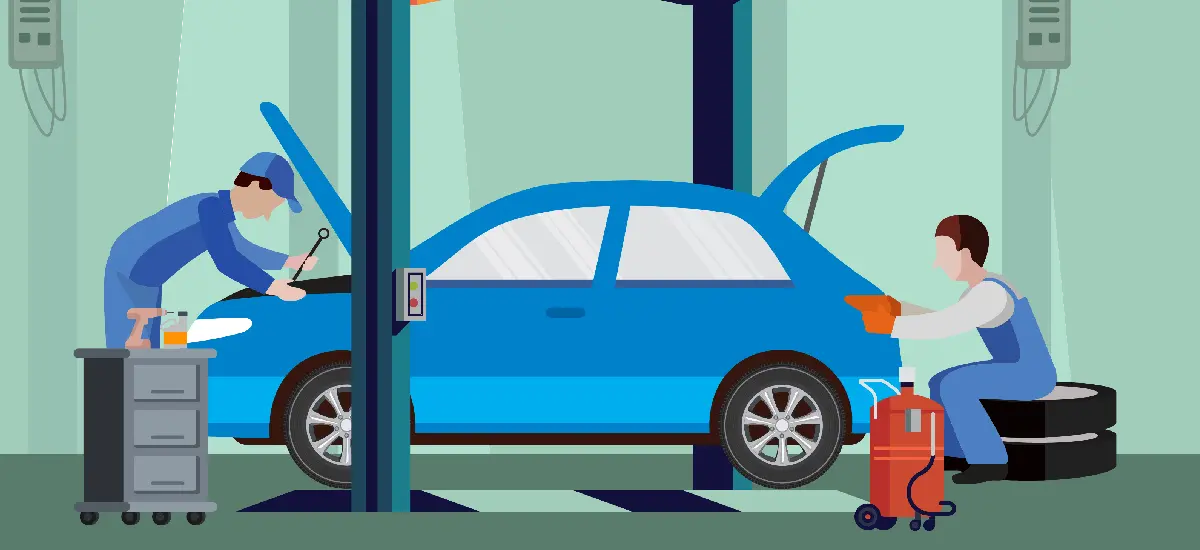Regular vehicle maintenance is not just about keeping your car in good condition—it’s a critical aspect of safe driving. Whether you're navigating the busy streets of Sydney or exploring the scenic routes of New South Wales, a well-maintained vehicle ensures your safety, reduces the risk of breakdowns, and enhances your overall driving experience. In this blog, we’ll explore why regular vehicle maintenance is essential and provide practical tips to keep your car in top shape.

Quick Summary Box
TL;DR: Regular vehicle maintenance is crucial for safe driving. It prevents breakdowns, improves performance, and ensures your car is roadworthy.
- Time Required: A few hours every few months.
- Difficulty Level: Easy to moderate (depending on the task).
- What You’ll Need: Basic tools, a maintenance schedule, and access to a mechanic if needed.
Why Regular Vehicle Maintenance Matters
Maintaining your car isn’t just about avoiding costly repairs—it’s about ensuring your safety and the safety of others on the road. Here’s why regular maintenance is so important:
- Prevents Breakdowns: Routine checks help identify and fix issues before they lead to unexpected breakdowns.
- Improves Fuel Efficiency: A well-maintained car runs more efficiently, saving you money on fuel.
- Extends Vehicle Lifespan: Regular maintenance keeps your car running smoothly for years.
- Ensures Safety: Faulty brakes, worn tires, or malfunctioning lights can lead to accidents. Maintenance ensures all safety features are in working order.
- Keeps You Compliant: In New South Wales, vehicles must meet safety standards. Regular maintenance helps you avoid fines and penalties.
Key Areas to Focus On
Here are the most critical aspects of your vehicle that require regular attention:
1. Engine Oil and Filters
Why It’s Important: Engine oil lubricates the engine, reducing friction and preventing overheating. Dirty oil or clogged filters can damage the engine.
What to Do: Check the oil level monthly and change it as recommended in your car’s manual (usually every 5,000–10,000 km). Replace air and oil filters regularly.
2. Tires
Why It’s Important: Worn or underinflated tires can lead to blowouts, reduced traction, and poor handling.
What to Do: Check tire pressure monthly and ensure it matches the manufacturer’s recommendation. Inspect tires for wear and tear, and rotate them every 10,000 km.
3. Brakes
Why It’s Important: Faulty brakes are a major safety hazard and can lead to accidents.
What to Do: Listen for unusual noises (e.g., squeaking or grinding) and have your brakes inspected every 20,000 km or as recommended.
4. Lights and Signals
Why It’s Important: Properly functioning lights and signals ensure visibility and communication with other drivers.
What to Do: Check headlights, brake lights, indicators, and hazard lights regularly. Replace any burnt-out bulbs immediately.
5. Battery
Why It’s Important: A dead battery can leave you stranded, especially in extreme weather conditions.
What to Do: Inspect the battery terminals for corrosion and ensure the battery is securely mounted. Test the battery’s charge every six months.
6. Fluids
Why It’s Important: Fluids like coolant, brake fluid, and windshield washer fluid are essential for your car’s performance and safety.
What to Do: Check fluid levels monthly and top them up as needed. Replace fluids according to your car’s maintenance schedule.
Benefits of Regular Vehicle Maintenance
- Enhances Safety: Reduces the risk of accidents caused by mechanical failures.
- Saves Money: Prevents costly repairs by addressing issues early.
- Improves Performance: Keeps your car running smoothly and efficiently.
- Boosts Resale Value: A well-maintained car is more attractive to potential buyers.
Tips for Staying on Top of Maintenance
- Follow the Manufacturer’s Schedule: Refer to your car’s manual for recommended maintenance intervals.
- Keep a Maintenance Log: Track services and repairs to stay organized.
- Find a Reliable Mechanic: Build a relationship with a trusted mechanic for regular check-ups.
- Perform DIY Checks: Learn basic maintenance tasks like checking oil levels and tire pressure.
How Regular Maintenance Helps with the NSW Driving Test
If you’re preparing for the New South Wales driving test or road test NSW, ensuring your vehicle is well-maintained is crucial. Examiners will check that your car meets safety standards, including functioning lights, brakes, and tires. Regular maintenance not only helps you pass the driving test NSW but also ensures you’re driving a safe and reliable vehicle.
FAQs
1. How often should I service my car?
Most manufacturers recommend servicing every 10,000–15,000 km or every 6–12 months, depending on your driving habits.
2. Can I perform maintenance tasks myself?
Yes, basic tasks like checking oil levels, tire pressure, and fluid levels can be done at home. For more complex issues, consult a professional.
3. Where can I find a reliable mechanic in Sydney?
Search online for mechanic near me or ask for recommendations from friends and family. Look for certified professionals with good reviews.
Final Call to Action
Regular vehicle maintenance is a small investment that pays off in safety, performance, and peace of mind. If you’re preparing for the New South Wales driving test or simply want to ensure your car is in top condition, book a lesson with Right Choice Driving School today. Our experienced instructors will not only help you become a confident driver but also teach you the importance of maintaining your vehicle for safe driving.